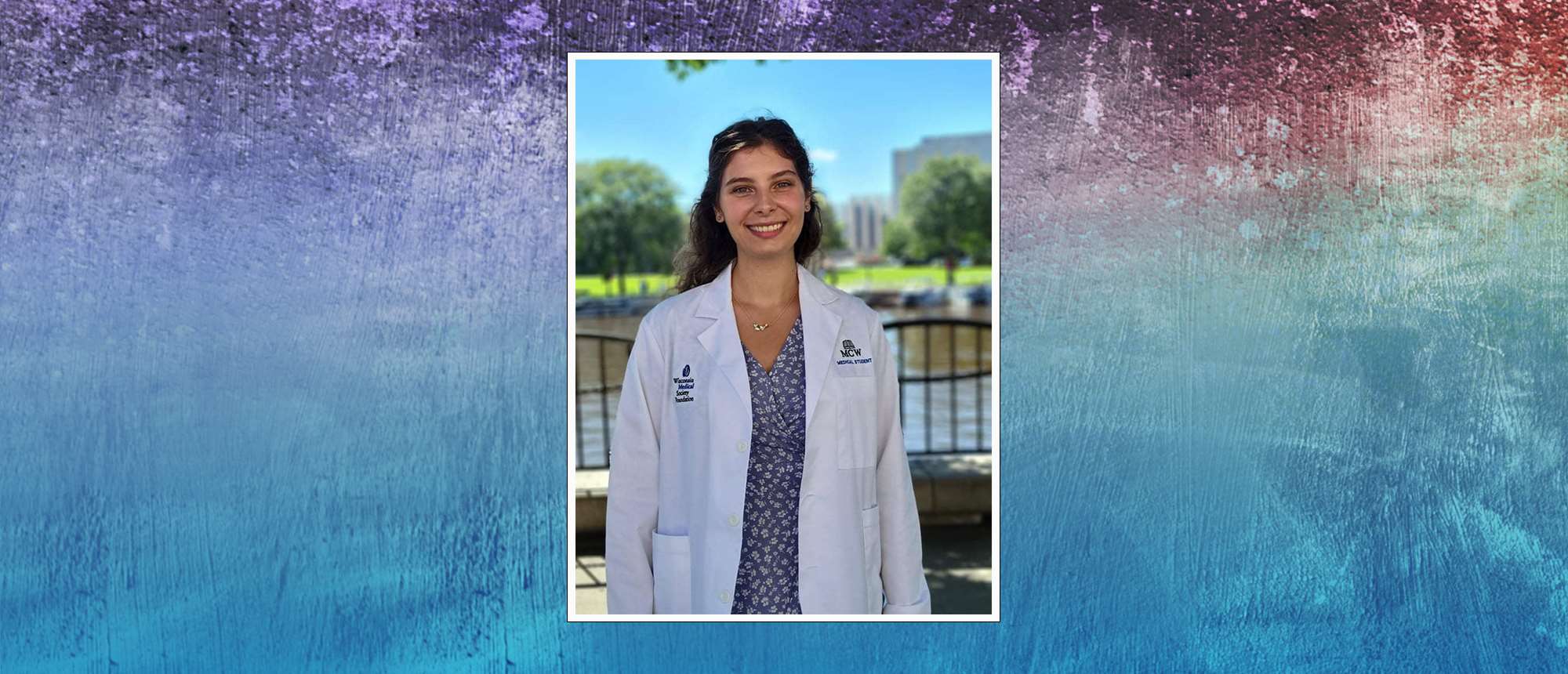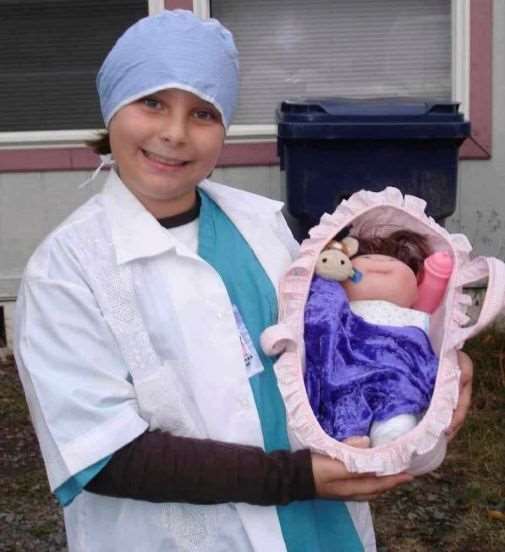Experience with Celiac Disease and Hashimoto's Thyroiditis Guides Student's Journey in Medicine

Brianna Celix, a third-year student at the Medical College of Wisconsin (MCW), always had an interest in medicine.
At 7 years old, Celix participated in a Relay for Life cancer charity walk, which motivated her to donate her hair as a way to help children with cancer.
“That’s when I first decided I was going to be a doctor so that I can actually help them more than just cutting off my hair,” Celix says.
Later, inspired by that experience, she dressed up as a pediatrician for Halloween.

But it was Celix’s own health challenges and the way she was initially treated that not only solidified her goal of becoming a doctor, but also motivated her to be one that shows great empathy. “If you don’t necessarily listen to or have empathy for a person, they might not get properly diagnosed, and then they’re going on for months and years living with a condition that they don’t understand,” she shares.
Celix experienced that first hand as a high schooler after she started to get sick frequently and felt tired all the time.
“Things just weren’t quite right,” she says.
After visiting an urgent care doctor, she was referred to an endocrinologist who unfortunately wrote her off.
“She’s making it up, or she needs to eat healthier and she needs to exercise more,” Celix recalls as the reaction she received.
Thankfully, a different physician listened to her experience and investigated, eventually coming to the diagnosis of Hashimoto’s thyroiditis – a disease that causes the body to create antibodies that attack cells in the thyroid.
For the next few years, Celix managed Hashimoto’s, before being diagnosed with a different auto-immune disease that would be far more difficult to control – celiac disease. People with celiac disease who ingest gluten, a protein naturally found in grains such as rye, wheat and barley and many everyday food products, cause damage to their small intestine.
“Almost everything has some form of gluten in it,” Celix says, listing pizza, chocolates and cakes as among the many foods she usually has to avoid.
Having celiac disease was a challenge from day one, as a trip to the grocery store with her mother now took hours and involved scanning each product for ingredients. Even visits to friends’ houses or restaurants proved daunting as the teen struggled to communicate why she was adamant that her food could not contain or be contaminated by gluten or it would cause damage to her small intestine.
“It’s really intimidating when you’re a teenager trying to ask for those things,” she recalls. “I found that the easiest way was to explain that it’s an allergy because then they’ll take it more seriously.”
All in all, the challenges she faced navigating her illnesses and also the health care system led her to understand that her role will not be just to provide medical care, but also look at factors such as social determinants of health, what type of access a person has and other challenges they may face.
“It’s kind of going in that direction of treating the whole person, and I think that’s really important in general health and wellness because of my experience,” Celix says. “Because I was written off during that time, it really lit a fire under me to really listen to those folks to figure out what’s going on.”
Celix’s goal is to work in pediatric endocrinology, which she says places her at the intersections of the person, their health, their environment and the ideals of integrative medicine. She feels that her experience will help her as she moves toward that goal.
“My journey into medicine being my own health journey as well gives perspective, gives ideas, gives empathy and understanding and wanting to do better for the other person,” she says.
Celix also plans to continue to share her own experience as a way to help others.
“We aren't having to feel ashamed or marginalized or pushed off to the side, but we can embrace those aspects, and it gives us some sort of power to have that story and to be able to use it going forward to become a better person, a better global citizen and a better future doctor,” she says.



